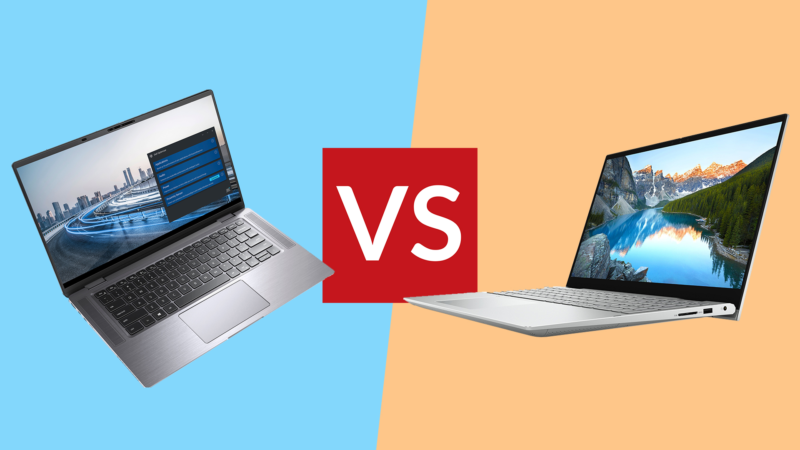What Features Should You Consider in Dell Precision vs. Latitude for Remote Work?
When selecting a laptop for remote work, the right choice can significantly influence your productivity and comfort. Dell’s Precision and Latitude series are both popular options but are designed with different user needs in mind. Whether you’re a creative professional, a business executive, or somewhere in between, understanding the unique features of each can help you make an informed decision.
Performance and Processing Power: Choosing the Right Workhorse
Performance is a cornerstone consideration in the Dell Precision vs. Latitude comparison, particularly if your work involves resource-intensive applications. The Dell Precision series is built for high-performance tasks, such as 3D modeling, video rendering, and advanced data computations. These laptops often come equipped with Intel Xeon processors, which are typically found in workstations and servers, providing the horsepower needed for demanding workloads. Alongside the Xeon processors, Precision models frequently feature NVIDIA Quadro graphics cards. Quadro GPUs are known for their reliability and performance in professional applications like CAD, CGI, and scientific visualization, ensuring that users can manage heavy graphical loads with ease.
In contrast, the Dell Latitude series is tailored for the business professional who needs a reliable machine for day-to-day tasks. Latitude laptops typically house Intel Core i5 or i7 processors, which strike a balance between performance and energy efficiency. These processors are perfect for multitasking across productivity tools like Microsoft Office, web browsing, and running business applications like CRM software. While the Latitude series might not match the sheer computing power of the Precision line, it offers ample performance for most business users, making it a solid choice for remote work that doesn’t require heavy-duty processing.
Precision vs. Latitude Portability and Battery Life: Balancing Mobility and Endurance
For remote work, portability and battery life are crucial considerations, as they directly affect how and where you can work. The Dell Latitude series shines in this department, offering sleek, lightweight designs that are easy to carry. Many models in the Latitude lineup weigh under 4 pounds, making them ideal for professionals who are frequently on the move. Additionally, Latitude laptops are designed with energy efficiency in mind, often featuring extended battery life that can last up to 20 hours on a single charge. This endurance makes the Latitude series particularly appealing to those who need to work from different locations throughout the day, without the constant need to recharge.
The Dell Precision series, while also portable, tends to be bulkier due to the more powerful hardware it houses. Precision laptops often weigh more, and their larger size can make them less convenient for frequent travel. However, for those who primarily work from a home office or a fixed location, the trade-off in portability for enhanced performance might be worthwhile. Battery life in the Precision series is decent, typically ranging between 8 to 12 hours, depending on the model and usage. This is sufficient for most workdays but may require occasional recharging, especially during intensive tasks.
Precision vs. Latitude Display and Graphics: Visual Excellence for Every Task
The display quality and graphics capabilities are critical factors, especially if your remote work involves creative tasks, design, or data visualization. The Dell Precision series offers some of the best display options available in the laptop market. Precision models often feature high-resolution displays, with options for 4K Ultra HD and superior color accuracy, which are essential for professionals in graphic design, video editing, or architecture. The wide color gamut and high brightness levels ensure that what you see on the screen is true to life, a necessity for color-critical tasks. Furthermore, the inclusion of NVIDIA Quadro graphics cards means that Precision laptops can handle high-end graphical applications with ease, offering smooth performance even in the most demanding environments.
In comparison, the Dell Latitude series focuses more on providing solid display quality suitable for business applications. Most Latitude models come with Full HD (1920 x 1080) displays, which are perfect for typical office tasks such as document editing, video conferencing, and web browsing. Some models offer higher resolution displays, but they generally do not match the color accuracy or the graphical power of the Precision series. Latitude laptops are equipped with integrated graphics or mid-range discrete GPUs, which are sufficient for most business tasks but might struggle with more intensive creative applications. For users whose work does not heavily rely on high-end graphics, the Latitude’s display options will be more than adequate.
Build Quality and Durability: Ensuring Longevity and Reliability
Durability is an important consideration for remote workers who need a laptop that can withstand the rigors of daily use. The Dell Precision series is known for its rugged build quality, designed to handle tough working conditions. Precision laptops are often constructed from high-grade materials like aluminum and magnesium alloy, providing a sturdy chassis that can resist impacts and withstand harsh environments. These laptops undergo rigorous testing, including MIL-STD 810G military standard tests, to ensure they can survive drops, extreme temperatures, and vibrations. This makes the Precision series an excellent choice for professionals working in industries like construction, field research, or any environment where the laptop might be exposed to physical stress.
The Dell Latitude series also offers strong build quality, but with a focus on creating a balance between durability and portability. Latitude laptops are typically constructed from materials like carbon fiber and aluminum, which provide a solid feel without adding unnecessary weight. While they might not be as rugged as the Precision series, Latitude laptops are still designed to be durable enough for everyday business use. Many models also meet the MIL-STD 810G standards, making them capable of handling the bumps and scrapes that come with frequent travel. For remote workers who need a laptop that is both tough and easy to carry, the Latitude series offers a compelling option.
Security Features: Safeguarding Your Remote Work Environment
In the era of remote work, security is paramount, and both the Dell Precision and Latitude series come with robust security features designed to protect sensitive data. The Dell Latitude series is particularly focused on enterprise-level security, making it a favorite among business users. Latitude laptops come equipped with advanced security options such as smart card readers, fingerprint scanners, and facial recognition through Windows Hello, ensuring that only authorized users can access the device. Additionally, Dell’s proprietary security software, such as Dell SafeData and Dell SafeGuard, provides encryption and advanced malware protection, helping to secure your data against unauthorized access and cyber threats.
The Dell Precision series, while also featuring strong security measures, caters more to professionals who handle sensitive intellectual property or proprietary information. Precision laptops often include self-encrypting drives, which protect data even if the physical drive is removed from the laptop. BIOS-level security and TPM (Trusted Platform Module) 2.0 are also standard features, ensuring that the system’s firmware is secure from attacks. This makes the Precision series an excellent choice for industries like engineering, design, and finance, where the security of intellectual property is critical.
Customizability and Upgradability: Future-Proofing Your Investment
When investing in a laptop, the ability to customize and upgrade your machine can be a significant advantage, especially for remote workers whose needs might evolve over time. The Dell Precision series is renowned for its high level of customizability and upgradability. Precision laptops offer numerous options for customizing components at the time of purchase, including RAM, storage, processor, and GPU. Additionally, many Precision models are designed to be easily upgradeable, allowing users to increase RAM or swap out storage drives as their needs change. This flexibility makes the Precision series a future-proof option for professionals who anticipate growing demands from their work applications.
The Dell Latitude series, while also offering some degree of customization, is generally less flexible in this regard. Latitude laptops are designed to be more straightforward, with fewer options for upgrading components after purchase. This makes them more of a “ready-to-go” solution, ideal for users who need a reliable, out-of-the-box machine without the need for significant future upgrades. However, some Latitude models do allow for upgrades to RAM and storage, offering a limited degree of future-proofing. For remote workers who value simplicity and reliability over customization, the Latitude series is a solid choice.
Precision vs. Latitude Price and Value for Money: Making an Informed Investment
Price is often a decisive factor in choosing between the Dell Precision and Latitude series, particularly for remote workers with varying budgets. The Dell Latitude series is generally more affordable, with a wide range of models that cater to different price points. Latitude laptops offer excellent value for money, particularly for business users who need a reliable and secure machine for everyday tasks. The Latitude series is an attractive option for small businesses, freelancers, and remote workers who need a dependable work laptop without the premium price tag.
On the other hand, the Dell Precision series is positioned as a high-end offering, with prices reflecting its superior performance, build quality, and customizability. While the upfront cost of a Precision laptop is higher, it offers excellent value for professionals whose work requires top-tier performance and the ability to handle demanding tasks. The Precision series is a worthy investment for users who need the best in processing power, graphics, and customizability, and who expect their laptop to deliver on these fronts for years to come.
FAQs: Dell Precision vs. Latitude?
Q. Which series offers better performance for demanding tasks?
A. The Dell Precision series is designed for high-performance tasks, making it ideal for professionals involved in 3D modeling, video editing, and complex data analysis. Precision laptops often feature powerful Intel Xeon processors and NVIDIA Quadro graphics cards, offering superior computing power compared to the Latitude series, which is better suited for everyday business tasks.
Q. Is the Dell Latitude series more portable than the Precision series?
A. Yes, the Dell Latitude series is generally more portable, featuring lightweight designs and extended battery life, making it perfect for remote workers who need to travel frequently. Latitude models are designed for mobility, with some models offering up to 20 hours of battery life, while the Precision series, although portable, is bulkier due to its more powerful hardware.
Q. How do the display options compare between Dell Precision and Latitude?
A. The Dell Precision series offers higher-end display options, including 4K resolution and superior color accuracy, which are essential for professionals in design, video editing, and other visual work. The Dell Latitude series, on the other hand, typically comes with Full HD displays, which are sufficient for standard business tasks but may lack the advanced visual quality needed for creative work.
Q. What are the key security features of the Dell Latitude and Precision series?
A. Both series include robust security features, but the Dell Latitude series is tailored for business professionals, offering options like smart card readers, fingerprint scanners, and facial recognition. The Dell Precision series focuses more on protecting intellectual property, with features like self-encrypting drives and BIOS-level security, making it ideal for industries requiring stringent data protection.
Conclusion
In the Dell Precision vs. Latitude debate, the best choice ultimately depends on your specific needs as a remote worker. If your work requires high-performance capabilities, superior graphics, and extensive customizability, the Dell Precision series is the clear winner. However, if you prioritize portability, battery life, and enterprise-level security, the Dell Latitude series offers a compelling solution.
Both series have their strengths and cater to different user profiles. By carefully considering factors such as performance, portability, display quality, build durability, security features, customizability, and price, you can make an informed decision that aligns with your remote work requirements.

